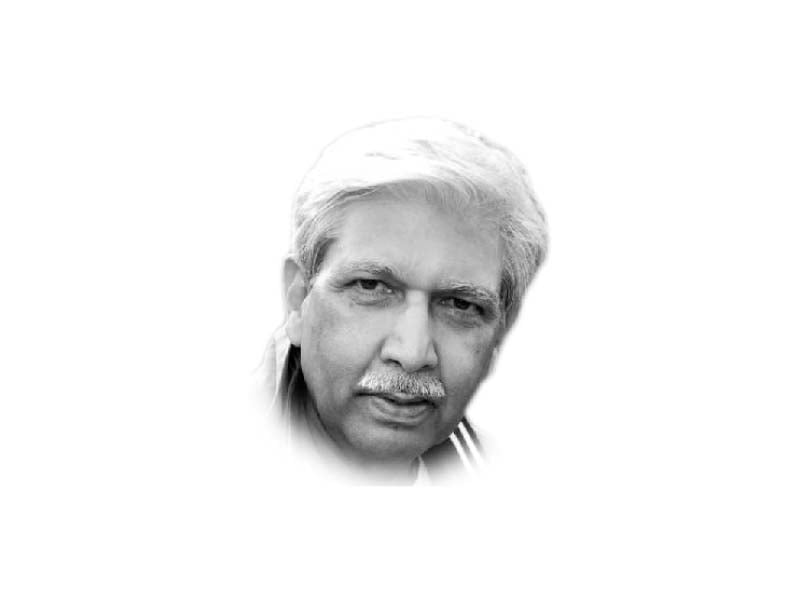
I wasn’t yet 19 when we lost East Pakistan in 1971. In uniform at the air force academy I was too fresh to be trained for flying but trained enough to carry firearms. Equipped with a Lee-Enfield three-naught-three (.303) caliber rifle we were tasked for guard duties at different points on the base to ward off the threat of surreptitious insurrections by Indian commandos against our airfield. The .303 was every soldier’s accompaniment in wars till then. When laced with a bayonet it looked menacing. Soon we transferred to the Heckler & Koch G3 but that was well after the war. The Smith &Wesson for us was still some time away.
We did our posts to the best of our ability keeping with the possibility of a commando attack so when we lost the war and East Pakistan to the Indians and the Mukti Bahini it was heartbreaking. Not that we didn’t see it coming just that the pain of secession and a war lost was far worse than anything our young hearts had ever borne. We cried like babies as did our field-instructors. Slowly we picked our lives together as politics under ZAB began igniting new hope. Pakistan came out of such truncation and re-established in its newer form testifying to its resilience as a people. It retains its centrality as a key state in South Asia but all this only became evident much later. It wasn’t enough though to ease our heartache.
The days struggled to find direction even as we pieced life together. I put pen to paper to ease my burden and turned out a short story titled “The East is Red”. As it turned out I wasn’t the first one to turn east red. It was the early ‘70s and socialist trends dominated politics and culture as a fad, so thinking progressive and libertarian was the thing to do. Many were turning east red. Mine never counted because it never published and was confiscated the moment it made an appearance out of my desk drawer. My story revolved around two innocent young friends, hardly seven or eight, who indulged every day in their innocent playfulness. That day they decided to play war. One chose to be Pakistan while India was thrust on the other much to his anguish and dislike. After initial haggling over who was whom they reluctantly settled into the game.
A line was drawn mimicking a border. Positions, posts and weapons were emplaced in small heaps of dust gnawed out of the soil they played on. Small stray barks stood for artillery pieces; even smaller became guns peeping out of the posts. Behind each the man was the same, one of them, India and Pakistan on their respective sides. Soldiers in the story rose to their humungous self to be defined in single identity, India or Pakistan. Just these two mattered. Fresh out of a military defeat and loss of half the country the only way left for India in this young boy’s game was to aggress and destroy with force the imagined Pakistani positions. As he leveled the emplacements in the soil with his hands and barks mimicking weapons, Arshad, the character who was Pakistan lost his cool and began thrashing out at Akbar, India.
The fight went on for a while between the two friends who were now enemies after their assumed roles. In a moment of uncontrolled rage Arshad rushes to his house which is next door, picks up a kitchen knife and rushes out to unsuspecting Akbar of what was to follow. Arshad thrusts the knife into the soft belly of Akbar who is not only shocked but is too dumbfound to thwart a real attack. Akbar bleeds profusely as his blood gushes out on to the soil below where they had just been mimicking a war between them. The soil below and the east, both turned red. My story finished there. I think it lifted the burden of my young heart even though the pain multiplied manifold.
A couple of months more as we settled into our training schedules our ground instructors tried their hardest to find us purpose. One of them was our scholarly English instructor, a poet who had migrated from Government College Lahore to the air force. A Ravian, he stood out for being different; liberal and progressive for sure and given the run of times most unsuited to the disciplined surroundings of the air force — he was mostly in trouble with the Commandant for consequences arising out of his indulgence of the previous evening. But he was intellectually brilliant. One day I took the story to him for review and guidance. He kept it for a couple of days and then invited me in for a private chat.
His advice was short: “Young man, decide once for all if you wish to serve the air force or not because with such a trend of mind you are at a wrong place”. Still trying to barely survive the challenges of a military life I had no option. I reiterated my belief in the cause of service promising to bring glory to the motherland. He said he was confiscating the story; however, would not let anyone else know of it or I would be in great trouble for entertaining such revolutionary thoughts. Flight Lieutenant Anwar, the English teacher, I believe is no more. He couldn’t survive the air force for too long and went back to his alma mater and then his Creator soon after.
So when even more recently I heard the young Turks of Pakistani politics, Maryam Nawaz and Bilawal Bhutto, invoking their dads for being one-up on the other and drawing lines in their juvenile exuberance, I just wanted them to know that drawing lines is easier said than lived with. Lines in the sand, or soil, need blood to sustain and shedding blood is not easy. From a political standpoint one doesn’t draw lines rather forge ways when none exists. Politics is the art of the possible. Drawing lines and living with those draws its own cost.
The Ides of March may have stung the PDM the hardest in current climes but back then when we were young and impressionable the severing of the umbilical broke us down and apart. ZAB too had drawn a line; the consequences are for all to see. East Pakistan still resonates in us as a part severed. Many like to compare how well has Bangladesh done spiting the lack of similar progress here but fail to realise from what depths has Pakistan risen. We could have done far better a lot faster but somewhere along the way we became victims of entitlement exhibited by this new breed of leaders. For paltry gains and misplaced vanity we pay an enormous price. Having failed to learn lessons from our unsavoury past we haven’t yet discovered the political maturity needed to match the needs of 21st century statehood. Drawing lines doesn’t get us there, complementing does. Lines shed blood; the two young characters from the short story tell me.
Published in The Express Tribune, April 2nd, 2021.
Like Opinion & Editorial on Facebook, follow @ETOpEd on Twitter to receive all updates on all our daily pieces.




1725967717-0/Untitled-design-(3)1725967717-0-165x106.webp)









COMMENTS
Comments are moderated and generally will be posted if they are on-topic and not abusive.
For more information, please see our Comments FAQ